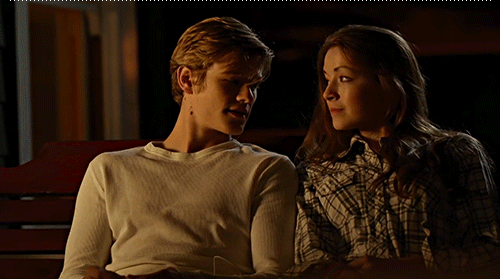The Stages of Falling In Love
Feb 8, 2017 • 8List

Feb 8, 2017 • 8List
Ah, sweet love. Where would we humans be without the muse responsible for the sweetest melodies in music and the most heart-warming sonnets? Yet, the same muse is also responsible for the most tragic, most heartbreaking, most ugly-cry inducing lines ever created by man. Yes, love is a two-headed monster. It takes as much as it gives.
Here we examine said monster and understand what happens to our brains when we fall in love. While we like to comfort ourselves with the knowledge of the stages we go through, we know it won’t matter when love strikes; common sense gets thrown out the window.
In a study, Donatella Marazziti, Professor of Psychiatry at the University of Pisa, likens the initial stages of falling in love to those with obsessive-compulsive disorder—albeit a mild and temporary form of OCD. Basically the hormones responsible for suppressing feelings of anxiety and stress are depleted at the early stages of romance. Hence, the jitters and stress. Don’t worry; the same study showed that these hormones go back to normal levels 12-18 months into the relationship. If you get that far.
Now that it’s got its hooks on you, love wants you to run after it by releasing the same chemicals that reward people addicted to drugs and gambling. This euphoric feeling is so intense, you can’t get enough of it. And the more you think about your crush, the more dopamine is released into your system, which makes you want to daydream about your crush even more.
At this stage, your brain has made up its mind (get it?) and decides that you cannot be without this person. The only way you can get the same high you feel whenever you think about that person is to actually be with the person. In this phase, your limbic system—the one that rewards you with that euphoric feeling—acts as a feel-good switch that keeps you craving the one you love. When the object of affection is not around, you experience withdrawal symptoms, and you are moved to tell them how much you miss them and cannot live without them, yadda yadda.
There’s a reason why you get queasy whenever you get close to your bae. The drugs responsible for that is oxytocin, which makes your head spin with joy, and cortisol, otherwise known as the “stress hormone.” This confusing mix of elation and confusion is what makes you feel like your stomach is filled with butterflies. Yes, love is confusing. Don’t ever say love did not warn you of what’s to come.
“What did you ever see in that guy/girl?” Yes, a lot of people would advise us against falling for someone, but we pay them no heed. Why? Because love shuts down that part of your brain responsible for making you sane and reasonable. When we fall in love, there’s a reduced amount of activity in our frontal and prefrontal cortices in our brain—the very parts we need to analyze situations and make sound judgement, and to learn from our mistakes.
Now that dopamine has done its job, oxytocin takes over. Unlike the quick high we get with dopamine, oxytocin lasts longer. This is that stage when you know you’re in real trouble. This is the next level. This is the “Fatal Attraction” stage.
Now that you’re in too deep, you would do anything to commit to this person, and have that person commit to you. If they don’t, ugly cry ensues.
But if you’re lucky enough to have that other person commit to you, then something magical happens. Oxytocin is still doing its magic on our brains, but these things called vasopressin receptors work together with the oxytocin and make us commit to our partners fully by being monogamous.
Your pupils dilate, your breathing becomes relaxed, and all the pain goes away. The simple act of kissing releases endorphins and dopamine to relieve you of the stress that love gives you. In this sense, the poison is also the cure. Hooray for love!
What stage are you at now? Tell us below!
Input your search keywords and press Enter.
